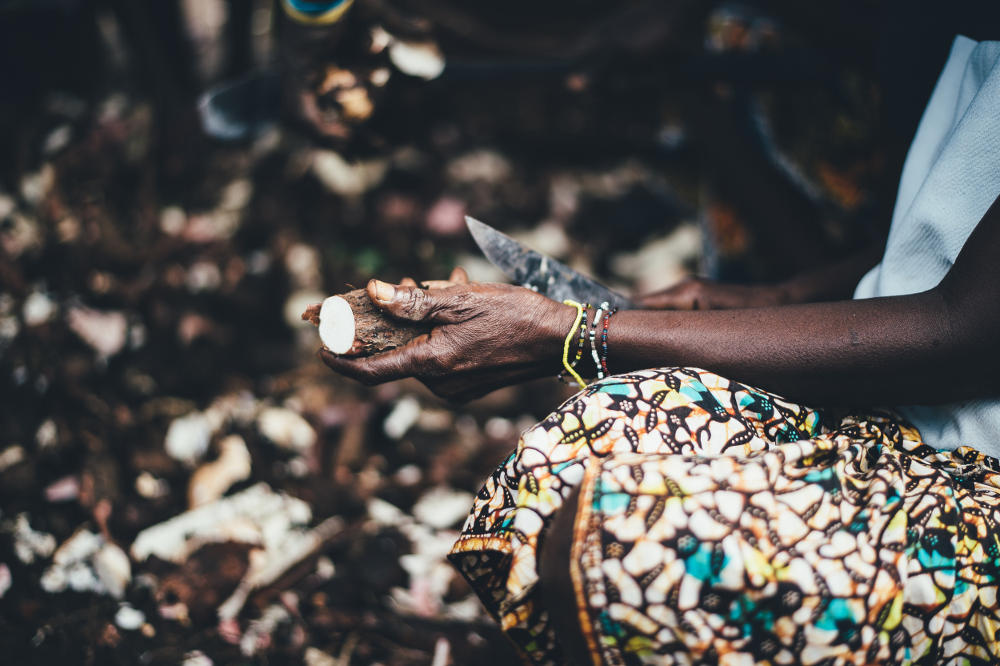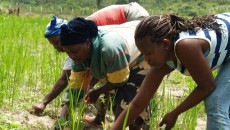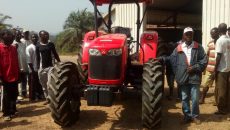Achieving food and nutrition security poses major challenges for the African continent as the results of low productivity, inefficient national policies to support the agricultural sector, or prolonged years of political and economic instability, which are determinant factors of economic growth as agriculture provides livelihood of more than 60% of the continent.
Liberia is one of the countries challenged with the issue of tackling food and nutrition security and is in fact a food insecure nation. As a country that missed out on achieving Goal 2 of the Millennium Development Goals: Reducing hunger by half by 2015, the road to achieving Zero Hunger by 2030 might prove a bumpy one for Africa’s oldest republic.
Given the current state of the nation’s economy, where the contribution of the national budget to agriculture barely exceeds two percent, one would conclude that if enough is not done, the West African nation might likely fall short of achieving zero hunger by 2030.
In the wake of these challenges, is it possible for Liberia to beat the odds to achieve zero hunger by 2030? Obviously, the road to success is a very narrow and beating the odds requires a spirit of unity and true patriotism from every Liberian.
A Glance at Progress Made
To enhance food and nutritional security, which mostly affect women, children and youths, the government has already been a signatory to many international declarations and protocols intended to improve the socio-economic status of its citizenry.
Among those are the Millennium Development Goals, the Abuja Declaration, the Maputo Declaration on Agriculture, and recently the Malabo Declaration, which mandates all African states to allot at least 10 percent of national budget to the agriculture sector.
Over the years, steady but significant steps have been taken to curtail these, including capacity building of technicians in various specializations, the establishment of a Food and Nutrition Unit at the Ministry of Agriculture, processing and value addition programs at some of the agricultural agencies, and investment in local agricultural enterprises and ventures like the livestock and fisheries sub-sector. There has also been investment in the community forestry programs providing awareness on various conservation practices of agricultural natural resources among smallholder farmers, most of whom depend on these for livelihood.
According to the Assessment of Chronic Food Insecurity Report, the level of food insecurity in the south eastern region of the country is 40-45 percent higher than in other parts of the country. This requires rigorous approaches by relevant stakeholders to take the country a step ahead, as being a food secure population is cardinal to economic development. Achieving zero hunger by 2030 means addressing the fundamental causes that undermine and compromise food nutrition and security.
Challenges and the Way Forward
According to The Food and Agriculture Organization, food and nutrition security exists “when all people at all times have physical, social and economic access to food, which is consumed in sufficient quantity and quality to meet their dietary needs and food preferences, and is supported by an environment of adequate sanitation, health services and care, allowing for a healthy and active life.†However, access and affordability of quality and nutritious food in Liberia has been hindered by high poverty rates, an underperforming labor market, and poor infrastructure, particularly in rural areas with the poorest road networks. Poor infrastructure contributes to huge post-harvest loss, especially for perishable crops, and it subsequently contributes to high crop prices due to increased transport costs for basic agricultural commodities.
A country’s farming systems also affects food and nutritional security. In Liberia, most food producers are practising at the smallholder level, with low external input. Most lack the requisite technologies and extension services for enhanced productivity, thus creating a huge gap along the food value chain.
If the dream of achieving zero hunger is at the heart of national development, a robust national policy properly reflected in the national budgetary plan could pave the way for progress. Unfortunately, the country’s budgetary support to agriculture over the last decade rarely exceeded five percent, contrary to the Malabo Declaration.
The failure of the government to prioritize investment in the agricultural sector means the unnecessary perpetuation of crippling levels of malnutrition. This could mean undermining the very national vision of  achieving zero hunger by 2030, which is heavily dependent on the agricultural sector.
If Liberia must make this dream a reality, it requires research-based home grown solutions which take into considerations the changing dynamics within the sector. In a country where there is a very low ratio of extension workers to farming households (1:5,000) it is important to invest into subject matter specialist extension officers who could best set the pace for these farmers and agriculture entrepreneurs who are at the base of the food value chain.
Investment in the fertilizer industry could be a newer frontier for the agricultural sector, especially where fertilizer use among smallholders in the country is insignificant compared to other African countries.
It is only with increased strategic investment in agriculture, and more particularly in agrarian reform and ecologically friendly smallholder production systems that could transmute this awful food security situation and move the country on the path of a middle-income nation by 2030, given the huge economic potential of the sector.



